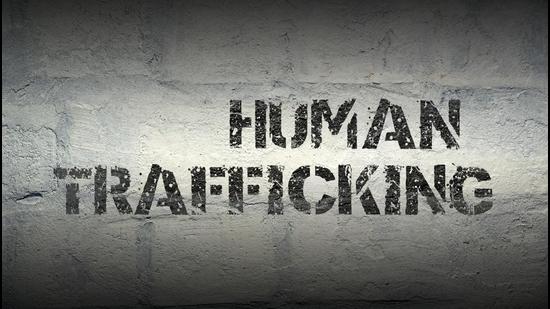The limitations of the new trafficking bill
Activists have pointed out several problems which could arise if the bill is passed in its present form
The new Trafficking in Persons (Prevention, Care and Rehabilitation) Bill, 2021, which was set to be passed this winter session of Parliament has been postponed. This bill has features which the 2018 one did not, including covering offences committed outside India’s borders if Indian citizens are involved and also includes trafficking in transgender persons.

The draft bill comes at the right time as there has been an increase in trafficking cases during the pandemic. All states and Union Territories are meant to have functional Anti-Human Trafficking Units (AHTUs), but a recent report shows that 16 states have such units only on paper.
However, activists have pointed out several problems which could arise if the bill is passed in its present form. One is that it conflates trafficking with forced labour and migration. It also has a clause which equates migration for work that is exploitative or in violation of existing labour laws with trafficking. Anyone with knowledge of this has to report it, failing which the person will be subject to punishment under section 35(2) of the proposed bill.
The problem here is that many migrant workers in the informal sector do not have documentary proof of identity or residence. So undocumented migrants can, in effect, be classified as trafficked/smuggled victims, if someone were to report them as being engaged in exploitative work. This would then lead to them being rescued and rehabilitated which may not be what they want but against which they have no recourse.
Conflating trafficking and sex work is another problematic area. Trafficking and sex work are distinct. While the ministry of women and child development has sought deletion of the provision in the Immoral Traffic (Prevention), Act (ITPA) that criminalised sex workers for soliciting customers, the proposed bill allows for increased criminalisation of those engaged in sex work on the assumption that all sex work is forced and involuntary.
Kashina Kareem, assistant director of Prerana, a non-governmental organisation which works in the field of trafficking says, “The socio-economic problem of trafficking has been misdiagnosed and is proposed to be solved within a crime and punishment framework. There is no clarity on how the provisions, procedures and practices across legislations like the Juvenile Justice Act, the Protection of Children from Sexual Offences Act and ITPA will conform with the provisions in the new law. The bill claims to be addressing prevention as stated in the title with barely any reference to prevention in the text of the bill.”
The new bill does not touch on trafficking for commercial surrogancy, online trafficking, trafficking for clinical trials, illegal adoption, underground forms of entertainment, bride trafficking and trafficking for organ harvesting. Then there is the question of rehabilitation of the victims. The bill is sweeping in its recommendations.
It seeks the setting up of protection homes, food, clothing, counselling and medical care as part of the rehabilitation process. While well-meaning, it is hard to envisage this becoming reality without the assurance of resources. So there is the danger that these provisions will remain largely on paper and will, at best, benefit only those victims of aggravated forms of trafficking. For a large part, rehabilitation should be community-based and not solely through institutional care. None of this is to suggest that the intention behind the bill is anything but laudable. But it would be wise to review it to make it easier to implement and iron out the anomalies before it is passed.
lalita.panicker@hindustantimes.com
The views expressed are personal
All Access.
One Subscription.
Get 360° coverage—from daily headlines
to 100 year archives.



HT App & Website







